Why do cats bite their owners?
Main reasons:
- Fear
- Play aggression
- Lack of socialization
- Hunger
- Overstimulation
The most common problem for cat owners is aggression and it’s can end up with cats going to shelters.
In this article I’ll go over in detail about the reasons cats bite their owners and what to do about it.
Then I’ll cover some frequently asked questions on the topic and wrap things up.
Why Do Cats Bite Their Owners?
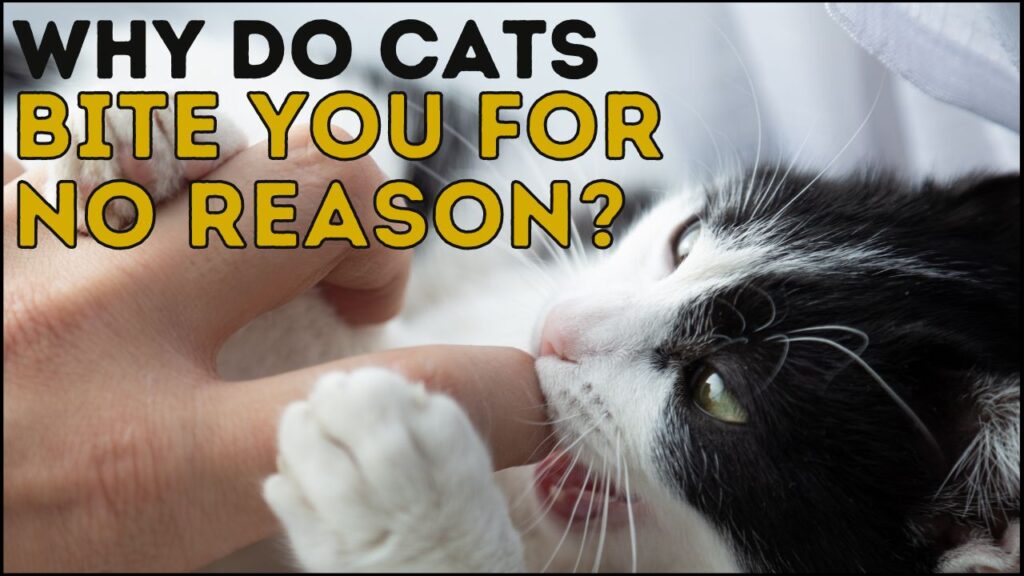
Here’s some reasons cats bite and what to do.
1. Fear
Scared cats attack.
This is the fight or flight response. Your cat is afraid and thinks they have to fight you.
Cats have different body language for play and fear based aggression.
- Ears forward
- Tense face
- Shifting backwards
- Hissing
Things that lead to fear:
- Other cats
- Children
- Physical punishment
Children may try to get attention too often triggering stress in cats.
Physical punishment serves no purpose, only to increase fear.
Solution?
Environmental enrichment.
Giving cats more places to perch helps reduce stress. Make indoors reflect the outdoor cat experience.
If you’re introducing a new cat and dog set up a safe zone. This gives cats a sense of control and predictability.
If improving the environment doesn’t help, talk with your vet.
Read more:

2. Play Aggression
Cats are carnivores.
One main activity of being a carnivore is hunting. Experts suggest play is a way for cats to hone their skills.
Indoor cats have more aggression, which suggests a lack of stimulation. Instead of hunting insects and bugs, they’ll see your foot as a target.
Solution?
Play with your cat.
Experts suggest 30 minute play sessions mimic hunting duration.
A toy that resembles a mouse seems to work best. Rotate toys every three days to prevent boredom.
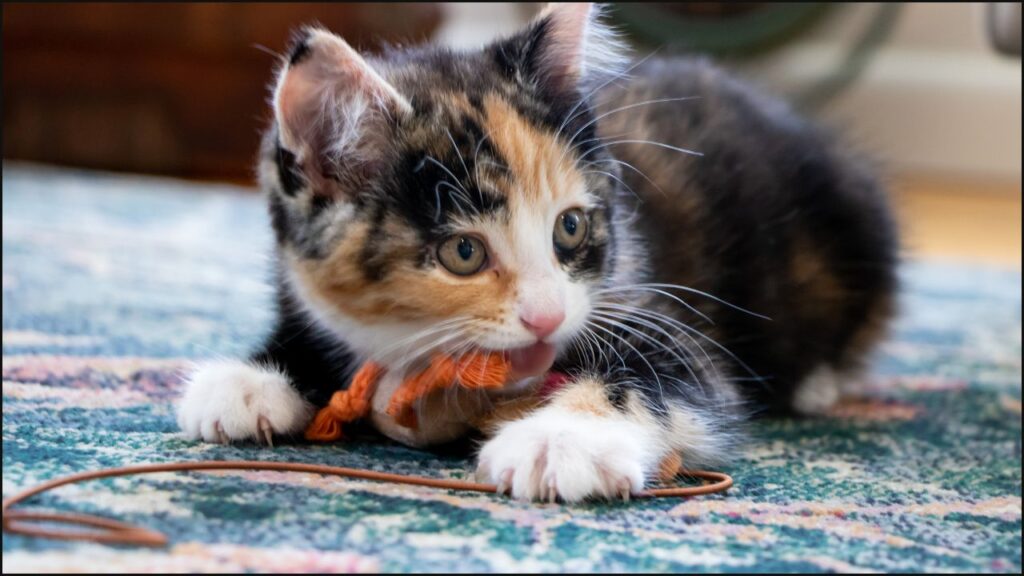
3. Lack of Socialization
Proper socialization helps cats develop affiliative relationships with people.
Researchers suggest 7-10 weeks is the ‘sweet spot’ to socialize kittens. Cats over this age find it hard to get along with people.
Kittens are also best raised with their littermates to learn how to play.
Without littermates, kittens play with their mother more. This shows they want to play with whoever is available.
Solution?
Tough one.
It’s an uphill battle socializing older cats, which is one reason so many cats end up euthanized. They just aren’t suitable pets.
Getting a second cat may be a good idea, depending on age and temperament.
A post COVID survey found lockdowns improved behavior in cats, possibly due to more ‘one on one’ time.
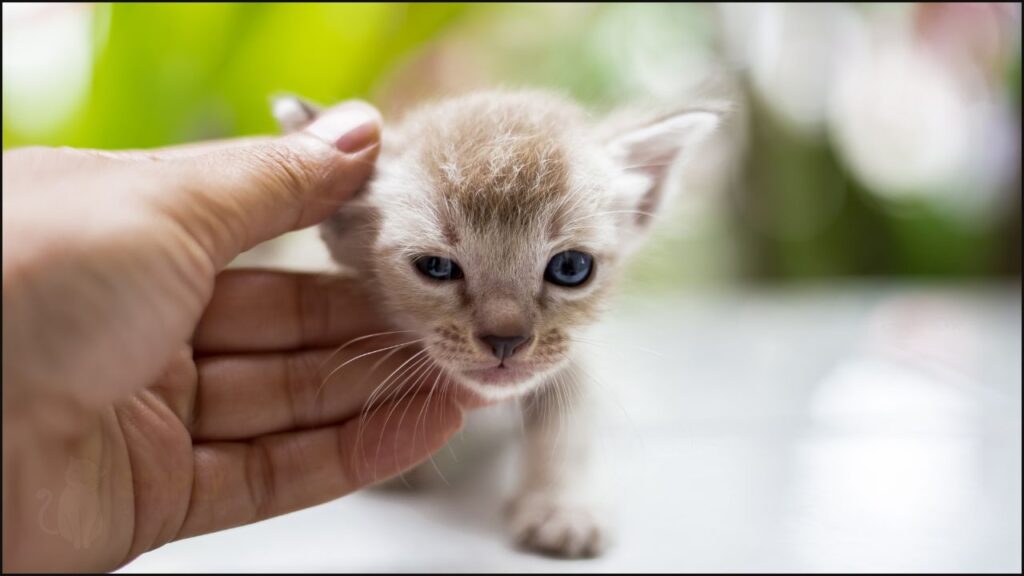
4. hunger
Being hungry seems to make cats bite more.
Research shows cats given a high meat diet and object play spend less time hunting wildlife. May also help stop them hunting you.
Solution?
Have a schedule.
Provide cats predictable meal times. That could help here.
Some experts suggest putting play before meals (i.e. to replicate the cycle of hunt, catch, kill, and eat). This builds positive reinforcement (play = food).
Learn more:
5. Overstimulation
Petting can cause a bite.
Sometimes, cats bite when you pet them too long.
There could be many reasons for this, but it’s important to check the body language of your cat. Cats in the mood to play will bite (usually not hard) and see your hand a toy.
Solution?
Play with your cat.
If you’ve got a bitey cat, they might just be in the mood for play. Your hand ends up being the toy.
Don’t punish cats as this sets up a negative loop (i.e. more fear > more bite > more punish > more fear > more bite).
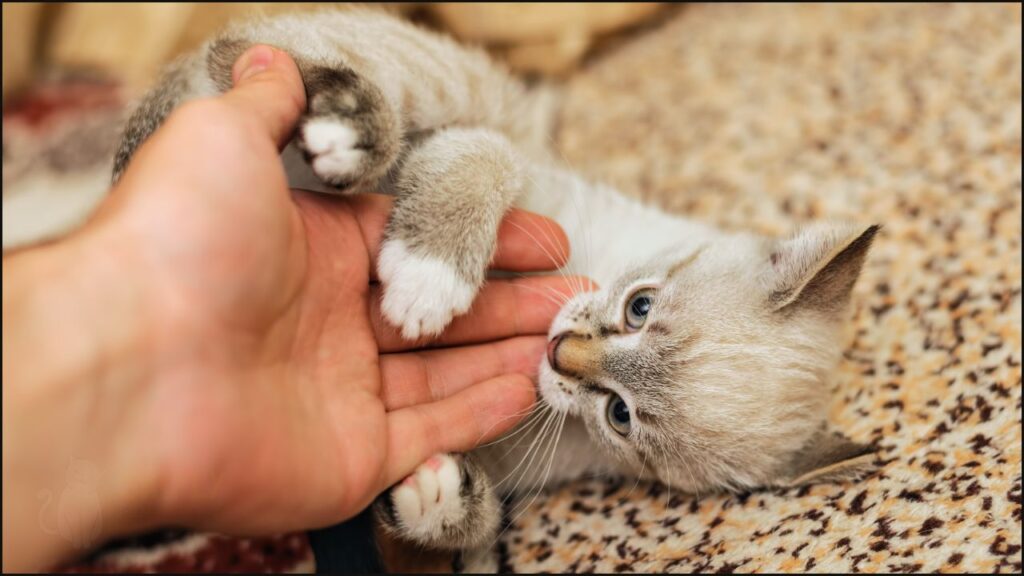
Freqeuntly Asked Questions
What to Do When Your Cat Bites You?
Use a toy.
Wand toys help redirect play behavior towards an object and not you. Toys mimic prey.
Rotate toys every three days to prevent habituation and boredom with the same old toy. Spend more than five minutes per session.
How Do You Discipline a Cat for Attacking?
Don’t hit your cat.
Instead cats need to learn that when you’re around, good things happen.
- Desensitization
- Counter-conditioning
Desensitization is an exposure to something that increases over time.
Counter-conditioning is replacing the bad association your cat has with you, with a good one.
Every interaction with you needs positive reinforcement (e.g. food, toys). That way cats have good feelings about your presence (if human around = fun and food).
Try small treats (don’t overdo it) when petting your cat.
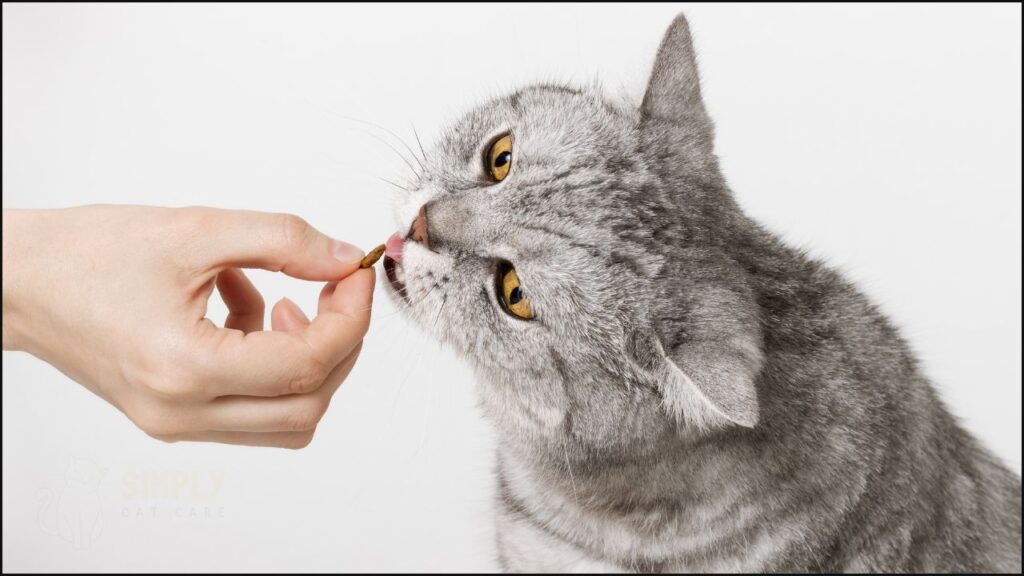
Conclusion
Main reasons cats bite their owners:
- Fear
- Play aggression
- Lack of socialization
- Hunger
- Overstimulation
Ways to build a better relationship with your cat include taking the time to play (especially if they’re young) every day. Up to 30 minutes works best.
Upgrade your environment with hiding and perching areas. This reduces stress and fear based aggression.
See a vet if problems persist.
